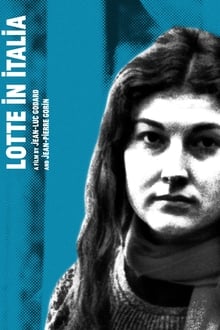
The film reveals how and why a supposedly revolutionary Italian girl has in fact fallen prey to bourgeois ideology.
You May Also Like
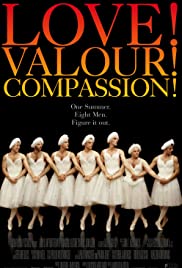
Gregory invites seven friends to spend the summer at his large, secluded 19th-century home in upstate New York. The seven are: Bobby, Gregory’s “significant other,” who is blind but who loves to explore the home’s garden using his sense of touch; Art and Perry, two “yuppies” who drive a Volvo and who celebrate their 14th anniversary together that summer; John, a dour expatriate Briton who loathes his twin brother James; Ramon, John’s “companion,” who is physically attracted to Bobby and immediately tries to seduce the blind man; James, a cheerful soul who is in the advanced stages of AIDS; and Buzz, a fan of traditional Broadway musicals who is dealing with his own HIV-positive status.

Kon Ichikawa’s retelling of the classic true story of Samurai honor. When a young clan lord is forced to commit seppuku (ritual suicide), his loyal followers (now Ronin, masterless Samurai) dedicate their lives to avenging his death.
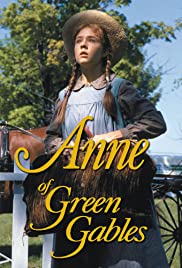
At the turn of the century on Prince Edward Island, Matthew Cuthbert and his sister Marilla decide to take on an orphan boy as help for their farm. But they get an unexpected jolt when they’re mistakenly sent a girl instead: Anne Shirley. Anne’s a dreamer with an unusual point of view, far removed from Marilla’s pragmatic ways, and it’s only on trial that Marilla agrees to keep Anne.
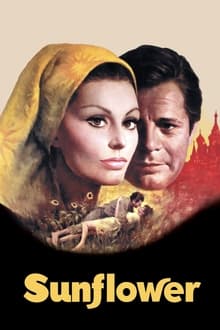
At the end of World War II, Giovanna, a war bride living near Milan refuses to accept that her husband, Antonio, missing on the Russian front, is dead. There’s a flashback to their brief courtship near her hometown of Naples, his 12-day leave to marry her, ruses to keep from deployment, and the ultimate farewell. Some years after the war, still with no word from Antonio, Giovanna goes to Russia to find him, starting in the town near the winter battle when he disappeared. Armed with his photograph, what will she find?
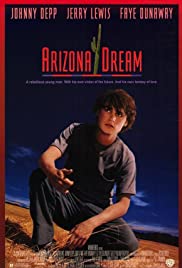
An Innuit hunter races his sled home with a fresh-caught halibut. This fish pervades the entire film, in real and imaginary form. Meanwhile, Axel tags fish in New York as a naturalist’s gofer. He’s happy there, but a messenger arrives to bring him to Arizona for his uncle’s wedding. It’s a ruse to get Axel into the family business. In Arizona, Axel meets two odd women: vivacious, needy, and plagued by neuroses and familial discord. He gets romantically involved with one, while the other, rich but depressed, plays accordion tunes to a gaggle of pet turtles

Following the death of his wife, a renowned musician ostracises himself from the outer world and dedicates his life to music. However, his life changes when a young man approaches him to learn music.
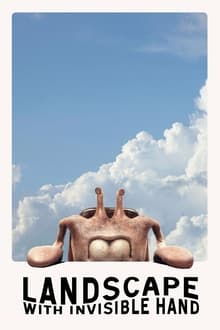
Years into a benevolent alien occupation, mankind is still adjusting to its new overlords. Their technology initially held promise for global prosperity, but rendered most human jobs – and steady income – obsolete. When two teenagers discover the aliens are fascinated with human love and will pay for access to it, they decide to livestream their romance to make extra cash for their families.

For over 130 years till 1996, more than 100,000 of Canada’s First Nations children were legally required to attend government-funded schools run by various Christian faiths. There were 80 of these ‘residential schools’ across the country. Most children were sent to faraway schools that separated them from their families and traditional land. These children endured brutality, physical hardship, mental degradation, and the complete erasure of their culture. The schools were part of a wider program of assimilation designed to integrate the native population into ‘Canadian society.’ These schools were established with the express purpose ‘To kill the Indian in the child.’ Told through their own voices, ‘We Were Children’ is the shocking true story of two such children: Glen Anaquod and Lyna Hart.
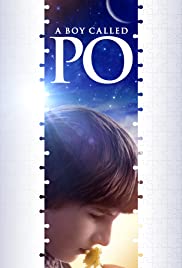
When David Wilson’s young wife falls victim to cancer, he is left a single working dad with the sole responsibility of caring for his sixth grade son with autism. Patrick, who prefers to be called ‘Po,’ is a gifted but challenged child who was very close to his mother and unable to communicate his own sense of loss. As father and son struggle to deal with life after mom, they each begin to withdraw into their own worlds. David into the high pressure job he’s close to losing and Po drifting away from the school where he’s bullied into his magical fantasy world, the Land of Color, where he’s just a typical carefree boy with a rich cast of other worldly companions. The growing divide between father and son and the challenges of single parenthood of a special needs child threaten to separate David and Po permanently. Based on a true story, the bonds of love between a grieving father and son are tested in the most real way in Po.

A series of snapshots from the life of a fictional actress named Shirley serves to weave together thirteen paintings by Edward Hopper (e.g. “Office at Night”, “Western Motel”, “Usherette”, “A Woman in the Sun”) into a fascinating synthesis of painting and film, personal and political history. Each station in Shirley’s professional and private life from the 1930s to 1960s is precisely dated: It is always August 28/29 of the year in question, as the locations vary from Paris to New York to Cape Cod.
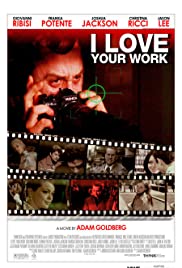
A fictional movie star, Gray Evans, goes through the disintegration of his marriage, his gradual mental breakdown, and his increasing obsession with a young film student who reminds Gray of his own life before becoming famous. A dark psychological drama, I Love Your Work explores the pressures of fame and the difference between getting what you want and wanting what you get.

Set in 1964, a camera crew follows Willie Pep, retired featherweight boxing champion. Down and out in Hartford CT, married to a woman half his age and with a drug-addled son and mounting debts, Pep decides to make a return to the ring.